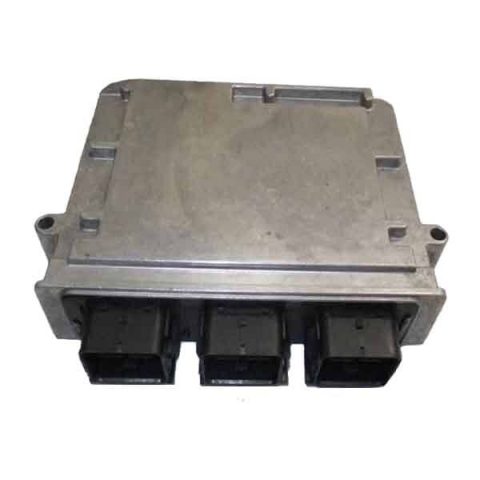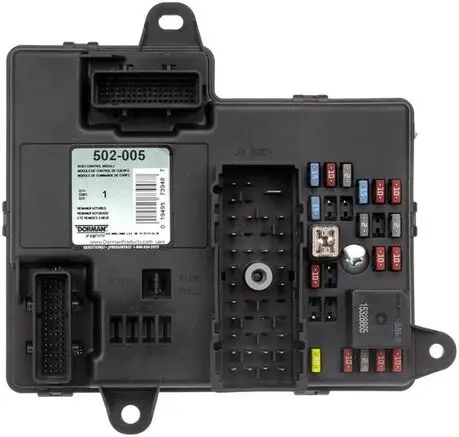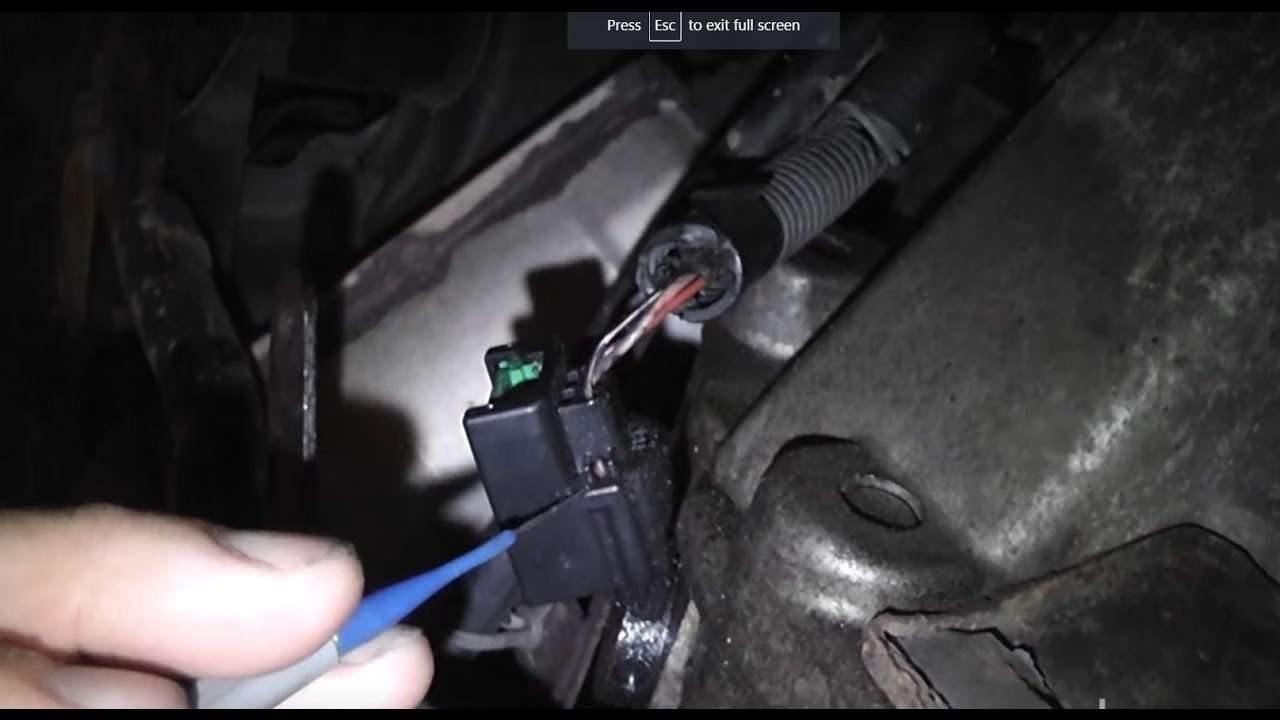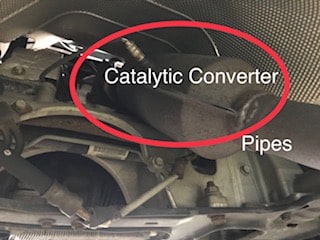Can a Bad Bcm Cause Transmission Problems
Yes, a bad BCM (Body Control Module) can cause transmission problems. A malfunctioning BCM can send incorrect signals to the transmission control module, leading to shifting issues or even complete transmission failure.
It is vital to diagnose and address any BCM issues promptly to prevent damage to the transmission system.
Effects Of A Bad Bcm On The Transmission
When a vehicle’s Body Control Module (BCM) malfunctions, it can have a range of adverse effects on various systems, including the transmission. Understanding the effects of a bad BCM on the transmission can help drivers identify and address potential issues promptly.
Warning Lights And Error Codes
If the BCM is experiencing issues, it may trigger warning lights on the dashboard, such as the transmission control module (TCM) or check engine light. Additionally, the vehicle’s onboard diagnostic system may store error codes related to transmission control module malfunctions. These indicators are crucial signals that there might be a problem with the BCM that could be affecting the transmission.
Failure To Shift Gears Properly
A bad BCM can lead to irregularities in shifting gears, resulting in delayed or rough gear shifts. Drivers may experience difficulty when transitioning from one gear to another or notice the transmission slipping, jerking, or hesitating. These symptoms indicate that the BCM’s malfunction is directly impacting the transmission’s performance, and immediate attention is necessary.
Common Signs Of A Bad Bcm
If you’re experiencing transmission problems, one possible culprit could be a faulty Body Control Module (BCM). The BCM is a vital component of your vehicle’s electrical system that controls various functions, including the transmission. When the BCM malfunctions, it can lead to a range of issues that affect the overall performance of your transmission. In this section, we will explore the common signs that indicate a bad BCM, helping you identify and resolve the problem before it causes further damage.
Electrical Issues
When the BCM starts to fail, you may notice a variety of electrical problems in your vehicle. These problems can manifest in different ways and can include:
- Intermittent or complete loss of power to various components
- Inconsistent or malfunctioning dashboard lights
- Unresponsive power windows or door locks
- Malfunctioning interior or exterior lights
- Problems with the vehicle’s audio system
These electrical issues can disrupt the smooth functioning of the transmission, causing it to behave abnormally. If you experience any of these symptoms, it’s important to have your BCM inspected and repaired as soon as possible.
Malfunctioning Transmission Components
In addition to electrical problems, a faulty BCM can also lead to malfunctions in the transmission components. These malfunctions can include:
- Difficulty shifting gears
- Slipping or delayed engagement when shifting gears
- Rough or jerky gear changes
- Unusual noises during gear shifts
- Failure to shift into the desired gear
These issues can not only affect the performance of your transmission but also potentially cause damage to other parts of the transmission system. Ignoring these signs and continuing to drive with a bad BCM can result in costly repairs in the long run.
If you are experiencing any of these common signs of a bad BCM, it is crucial to seek professional help from a qualified mechanic. They will be able to diagnose the issue accurately and recommend the necessary repairs or replacements. Taking timely action can help prevent further damage to your vehicle’s transmission and keep you safe on the road.
Causes Of A Bad Bcm
A malfunctioning BCM can potentially lead to transmission issues, causing problems such as erratic shifting, failure to engage gears, or even complete transmission failure. It is crucial to diagnose and address any problems with the BCM to ensure proper transmission function.
If you’re experiencing transmission problems in your vehicle, one possible culprit could be a faulty Body Control Module (BCM). The BCM is a crucial component responsible for controlling various electrical systems in your car, including the transmission. When the BCM malfunctions, it can lead to a range of issues, including transmission problems that can affect the overall performance of your vehicle. Understanding the potential causes of a bad BCM can help you diagnose and address the problem promptly.
Electrical Faults
One of the primary causes of a bad BCM is electrical faults. The BCM relies on a network of wiring and connectors to communicate with various sensors and modules in your vehicle. If any of these connections become compromised or damaged, it can result in a malfunctioning BCM. Electrical faults can be caused by factors such as corrosion, loose or broken wires, or poor connections. When the electrical system is compromised, the BCM may not receive accurate information, leading to transmission problems.
Water Damage
Water damage is another common cause of a bad BCM. If water manages to infiltrate the interior of your vehicle, it can seep into the body control module and interfere with its functionality. This can be particularly problematic if the water contains contaminants, as they can cause corrosion and short circuits. Moisture-related problems in the BCM can lead to communication errors and ultimately affect the transmission’s operation. So, if your vehicle has been exposed to flooding or has a history of water leaks, it’s essential to inspect the BCM for signs of water damage.
Software Malfunction
Another potential cause of a bad BCM is a software malfunction. The BCM relies on software programming to execute its tasks and communicate with other components in the vehicle. However, like any computer-based system, software glitches can occur. These glitches can result in erroneous signals being sent or received by the BCM, leading to transmission issues. Software malfunctions can stem from factors such as outdated firmware, programming errors, or even viruses. Regular software updates and maintenance can help mitigate the risk of this type of BCM problem.

Credit: www.fs1inc.com
Diagnosing A Bad Bcm
A bad Body Control Module (BCM) can potentially cause transmission problems in a vehicle. It is crucial to be able to diagnose a bad BCM to rectify any issues that may arise. Here are some methods to diagnose a bad BCM:
Scanning For Error Codes
Using an OBD-II scanner, scan the vehicle for any error codes related to the BCM. Fault codes such as U-codes or B-codes can indicate a malfunctioning BCM. These codes provide valuable insights into the specific issues within the BCM that need attention.
Testing Electrical Connections
Inspect the electrical connections to the BCM for any visible signs of corrosion, damaged wires, or loose connections. Testing the continuity of these connections with a multimeter can help identify any faults that may be causing the transmission problems. Properly functioning electrical connections are essential for the BCM to operate effectively.
Fixing A Bad Bcm
A bad Body Control Module (BCM) can lead to various transmission problems in your vehicle. The BCM is a crucial component that controls various electrical functions in your car, including those related to the transmission system. When the BCM malfunctions, it can cause issues such as erratic shifting, delayed transmission engagement, or even complete transmission failure.
Replacing The Bcm
Replacing the faulty BCM is one of the common solutions to fix transmission problems caused by a bad BCM. To replace the BCM, follow these steps:
- Consult your vehicle’s manual to locate the current position of the BCM.
- Disconnect the negative battery cable to ensure safety.
- Remove the old BCM by carefully disconnecting all the wiring harnesses and fasteners.
- Install the new BCM by aligning it correctly and reconnecting the wiring harnesses and fasteners.
- Reconnect the negative battery cable.
Reprogramming The Bcm
In some cases, replacing the BCM may not be enough, and reprogramming it might be necessary. Reprogramming the BCM ensures that it functions correctly with your vehicle’s specific configuration. Here’s how to reprogram the BCM:
- Contact a professional mechanic or authorized service center that specializes in BCM reprogramming.
- Provide them with the necessary vehicle information and the reason for reprogramming.
- Once the vehicle is connected to diagnostics equipment, the technician will initiate the reprogramming process.
- After the reprogramming is complete, the technician will test the BCM to ensure it functions properly.
Fixing a bad BCM is essential to restore the proper functioning of your transmission system. Whether you need to replace or reprogram the BCM, it is always recommended to consult a professional for accurate diagnosis and reliable repairs.

Credit: www.amazon.com

Credit: www.gmride.com.my
Frequently Asked Questions On Can A Bad Bcm Cause Transmission Problems
Can A Bad Bcm Cause Transmission Problems?
Yes, a bad BCM (Body Control Module) can cause transmission problems. The BCM controls various electrical systems, including transmission components. If it malfunctions, it can send incorrect signals to the transmission, causing issues like shifting problems, erratic behavior, or even complete transmission failure.
It is important to address any BCM issues promptly to avoid further damage to the transmission system.
Conclusion
To sum up, a bad BCM can indeed cause transmission problems in your vehicle. It’s crucial to address any BCM issues promptly to avoid further complications. By staying informed and attentive to your car’s performance, you can prevent and resolve potential transmission issues related to a malfunctioning BCM.
Keeping your vehicle in top condition ensures a smooth and safe driving experience.






